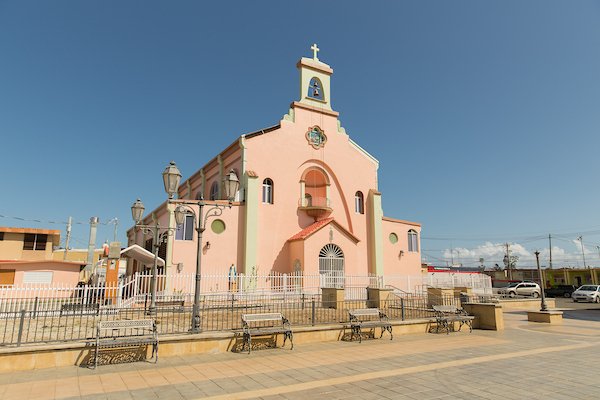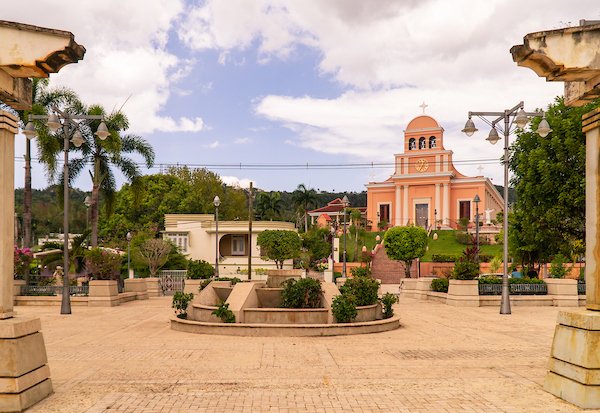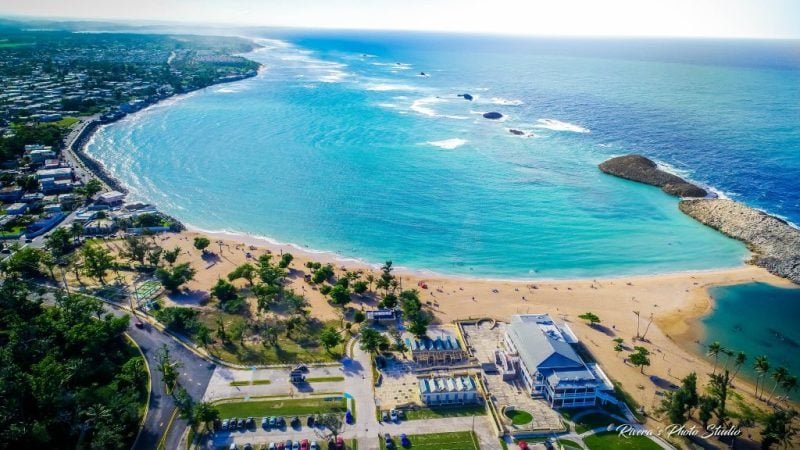
One of the most visited destinations in Puerto Rico is the city of Arecibo on the northern part of the island. The city is the largest by size on the island and is one of the oldest municipalities in the commonwealth. The area was originally settled in 1556 and the town was officially founded in 1616, with Captain Felipe de Beaumont y Navarra chosen to govern the land.
There are many interesting things to do here. The area encompasses a wide variety of environments, from sand-swept beaches to wooded hills and caves. The rich culture, ancient landmarks, and tropical beaches make this historic port town a great destination for any type of traveler.
The Cultural Center for the city is located at Casa Ulanga, a colonial building built in 1854 that has also been a courthouse and a hospital, among other things. The Cultural Center hosts various festivals and other activities around the year.
One of the most important festivals is the one for the city’s patron saint, St. Phillip the Apostle. A festival is held in his honor each year in May. In addition to the traditional religious processions, the festival also features dances, parades, and a wide variety of local foods.
The Punta Los Morrillos Lighthouse and Historical Park is one of the most popular attractions in the area. Here you can find a museum with exhibits about the buccaneer days, as well as a recreation area featuring a pirate’s island and replicas of early sailing ships. The park also has an aquarium, food vendors, sports facilities, and a mini-water park.
The single-dish radio telescope located at the Arecibo Observatory is the biggest in the world. It is used to collect data for scientists around the globe and has the ability to track celestial objects in different regions of the sky. The observatory is owned and operated by Cornell University and is open to the public for self-guided tours.
Northern Puerto Rico is also a great location for visiting unspoiled natural attractions. Natural structures close to Arecibo include limestone formations, far-reaching cave systems, and underground rivers. The 1,000-acre Cambalache Forest Reserve is near, with vivid birds, amazing flora, and many hiking and biking trails. A couple of areas of the forest are open for camping.

La Cueva del Indio, or The Cave of the Indian, is an interesting archeological site to visit. Located a few miles east of the lighthouse, the cave features drawings on the walls of the Indians that lived in the area, natural arches, and a natural limestone bridge extending over turquoise waters. By the sea cliffs, there are large rocks that ocean waves have formed into natural sculptures over time.
Cueva Ventana, or the window cave, is another interesting place to visit. This large cave overlooks a valley from the top of a cliff and is filled with stalagmites and stalactites. Visitors come for the breath-taking views of the area’s beauty.
This is also a great destination for a wide variety of water activities. The coastal area of the city is home to some of the prettiest beaches in Puerto Rico. One of the best beaches here is La Poza del Obispo beach, which sports beautiful golden sand and crystal-clear waters forming a natural pool. The waters here are generally calm, making it a great place for family excursions.
Visitors can also take a free ferry ride across the Dos Bocas Lake, a reservoir near the Río Abajo Forest south of the city. Near the pier, there are a variety of local businesses and restaurants that look charming against the backdrop of tropical foliage and mountain peaks.
Arecibo (ah-re-SEE-boh), settled in 1556, is a municipality in the northern midwest coast of Puerto Rico and located by the Atlantic Ocean, north of Utuado and Ciales; east of Hatillo; and west of Barceloneta, and Florida. Arecibo is spread over 18 wards and Arecibo Pueblo (The downtown area and the administrative center of the city). Arecibo is located on the north coast of the island of Puerto Rico, about 80 kilometres (50 miles) west of San Juan, or approximately a 1-hour trip by car.

Nickname: “La Villa del Capitán Correa”, “Muy Leal”, “Ciudad del Cetí”, “Diamante del Norte”, “Los Capitanes”
Gentilic: “Arecibeños”
| Flag The flag of Arecibo derives its composition and colors from the Shield of the City. It is divided vertically in two qual parts. The left side is blue having a belt that stands for “Captain Correa”, a local military hero from Spanish times. The other part is yellow with fifteen blue rhombis with the vertices touching each other and placed in three horizontal rows of five each and five vertical columns of three each. |
 |
| Festivals and events Bicycle Competitions – January Arecibo Carnival – February Playero Festival – July Folklore Festival – July Craftsman Fair – September Ceti Festival – November Puerto Rico’s Flag Centenial – December |
|
| Town Colors: Yellow and Blue Patron Saint: San Felipe Apostol Patron Festivities San Felipe Apóstol – May |
Arecibo Lighthouse:
This was the last lighthouse built by the Spanish government in 1898. The style of construction is neo-classical with a rectangular shape of 40’4″ (12.30 mts) wide by 84’2″ (25.64 mts) long, and has attached a hexagonal tower covered by a bronze dome with a working lantern. The original lens was a third order Fresnel, with an 18 mile radius. At the present time it has a 190mm lens with a white flash every 5 seconds
The Arecibo Observatory and Radio Telecopse:
The Arecibo Observatory is part of the National Astronomy and Ionosphere Center (NAIC), a national research center operated by Cornell University under a cooperative agreement with the National Science Foundation (NSF).
Things to Do In Puerto Rico – courtesy of Discover Puerto Rico.
Explore Arecibo – brought to you by
Life in a House – learn more
Arecibo Photo Gallery
















